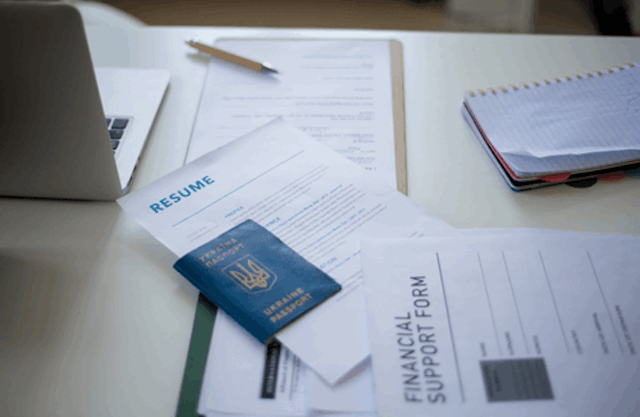- Ukrainians granted Temporary Protection to work in Ireland
Ukrainians granted Temporary Protection to work in Ireland
- Recruitment
Moira Grassick, Chief Operating Officer
(Last updated )
Moira Grassick, Chief Operating Officer
(Last updated )
Jump to section:
First published: May 3rd, 2022
All around us, news of the war in Ukraine is being reported. As the crisis in Ukraine continues, it’s likely to be an extremely difficult time for many, and employers may be faced with several challenges as employees navigate this difficult time. Whether they’re personally impacted or not, employees may be concerned about the implications from a wider perspective.
For employers ─ already impacted by two long years of dealing with the pandemic ─ the conflict in Ukraine represents another destabilising force.
As a result of the conflict, we’re seeing developments around the right to work being allocated to those fleeing violence in Ukraine. This is something all employers need to keep up to date on…
EU Directive: Eligibility for temporary protection
An EU law, known as the Temporary Protection Directive, was introduced in 2001. It created a special procedure for handling 'mass influxes' of migrants in need of international protection. Simply put, temporary protection provides immediate and temporary protection to displaced persons from non-EU countries who are unable to return to their country of origin.
The Directive was adopted into Irish law by Section 60 of the International Protection Act 2015. It was activated for the first time on March 3rd, 2022, by the European Council in response to the Russian invasion of Ukraine in February 2022.
For those fleeing the war in Ukraine, there are currently temporary measures in place that differ from regular immigration regulations. The Directive grants Ukrainian citizens a residence and work permit in Ireland, known as a Temporary Protection Permit. This is the first time that the Directive has been activated, despite previous calls to implement its provisions in response to various humanitarian crises during the last decade.
Under the terms of the Directive, those fleeing the conflict in Ukraine will be eligible for temporary protection, initially for one year but this may be extended.
Can Ukrainian nationals work in Ireland?
Ukrainians who left Ukraine on or after February 24th are now entitled to Temporary Protection. All Ukrainian nationals can travel to Ireland without a visa. A permission letter will be provided from the Department of Justice to Ukrainian nationals arriving in Ireland confirming that an individual has been granted Temporary Protection under the EU Directive.
After receiving this permission letter confirming their Temporary Protection under the EU Directive, a person has the right to search for employment or self-employment in Ireland. They can also enrol in vocational training and educational activities.
The permission letter grants the individual immediate access to employment, income support, accommodation (if needed) and other State supports in Ireland. During the Temporary Protection period, Ireland and EU member states must provide:
- Access to suitable accommodation
- Access to social welfare and medical care
- Access to education for children under 18
- The legal right to access employment
As this is a developing situation, employers must monitor the advice from the Department of Justice and government agencies involved in immigration to ensure they can help Ukrainians who arrive in Ireland. This is a fast-moving situation with frequent changes expected to policy and practice.
Additionally, employers should be aware that even people with no particular connection to Ukraine may find the media coverage of the conflict distressing and difficult to handle. Employers should monitor the situation and make adjustments to their support as necessary.
Staff wellbeing and the benefits of an EAP
Employers will want to provide employees with support during this difficult time. An Employee Assistance Programme (EAP) can be a valuable tool in providing practical and emotional support to employees impacted by the war in Ukraine.
Should your employees require specialist assistance, an EAP provides access to a confidential 24/7 helpline, Cognitive Behavioural Therapy (CBT) sessions, and online physical and mental health assessment tools.
Questions about HR?
If you have questions about the Temporary Protection Directive, the right to work in Ireland, or visa requirements we can help.
Speak with one of our HR consultants today on 1800 719 226.
- Ukrainians granted Temporary Protection to work in Ireland
FAQs
Got a question? Check whether we’ve already answered it for you…
Try Brainbox for free today
When AI meets 40 years of Peninsula expertise you get instant, expert answers to your HR and health & safety questions
